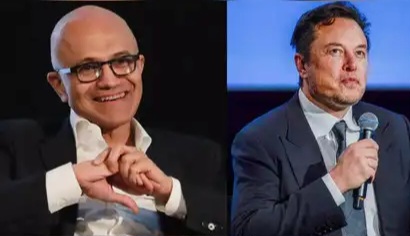Tech Leaders Silent as New H-1B Rules Roll Out

Elon Musk, Satya Nadella, Sundar Pichai and other prominent tech figures — all former H-1B visa holders — have not publicly responded to the recently announced rule imposing a **$100,000 fee** on *new* H-1B visa petitions. The policy change has stirred confusion and concern across the tech-industry and immigrant communities.
Quick Insight: Though tech leaders have been vocal on other immigration / talent issues before, their silence now raises questions about strategy, risk, or possibly behind-the-scenes advocacy. The new rule potentially affects the global talent pipeline deeply.
1. Who Are Aligned With the H-1B Past?
• **Elon Musk** — used H-1B earlier in his career; previously defended the H-1B system. 2
• **Satya Nadella** — Microsoft CEO; came to the U.S., secured H-1B; has spoken about immigration’s role in competitiveness.
• **Sundar Pichai** — Google CEO; also a beneficiary of H-1B in the past.
• Other immigrant founders: Eric Yuan (Zoom), Thierry Cruanes (Snowflake), Raj Sardana, etc.
2. What the New H-1B Rule Says
• A one-time fee of **$100,000** has been imposed for *new petitions* for H-1B visas.
• It does *not* apply to renewals or re-entry for existing H-1B visa holders.
• The administration frames the fee as a way to ensure only “extraordinarily skilled” applicants use the H-1B pathway, and to reduce perceived use of foreign labor in roles that could go to domestic workers.
3. Why the Silence?
• **Strategic caution**: These leaders may be avoiding public criticism to not jeopardize relationships with the government, or avoid backlash.
• **Legal / diplomatic considerations**: They may believe advocacy is happening behind closed doors or through industry groups.
• **Uncertainty**: Given the confusion over rules and how they’ll be implemented, public comment may be withheld until things are clearer.
• **Risk of alienating stakeholders**: Taking a strong stand could have consequences — politically, for employees, and for business.
Final Thoughts
The silence of tech leaders on such a major immigration policy shift is itself notable. Their past reliance on the H-1B program gives them credibility to speak out — but whether they will is unclear.
For tech workers, particularly those applying for new H-1B petitions, this is a moment to be very well informed: about timelines, eligibility, alternative visa options (like L1, O1), and how this rule might affect your employer’s hiring strategies.
This rule could reshape parts of the tech talent supply chain, especially for foreign talent. Watching how companies respond — shifting hiring, advocating, or changing strategies — will be important.
Also, the role of public pressure, media coverage, and industry coalitions may push leaders to break their silence.
Tip: If you're in tech and affected by H-1B rules, check with your employer’s immigration/legal department, stay aware of official announcements from USCIS/White House, and consider building your profile for alternative visas.
